Or at least, the cute, comical, absurd and peculiar…
✰ Samuel Johnson’s 1763 refutation of Berkeley’s denial of the existence of matter.
He kicked a rock in the street.

After we came out of the church, we stood talking for some time together of Bishop Berkeley’s ingenious sophistry to prove the non-existence of matter, and that every thing in the universe is merely ideal. I observed, that though we are satisfied his doctrine is not true, it is impossible to refute it. I never shall forget the alacrity with which Johnson answered, striking his foot with mighty force against a large stone, till he rebounded from it, ‘I refute it thus.’ This was a stout exemplification of the first truths of Pere Bouffier, or the original principles of Reid* and of Beattie; without admitting which, we can no more argue in metaphysicks, than we can argue in mathematicks without axioms. – Boswell, Life of Johnson
This is regarded as Johnson’s only significant contribution to philosophy. But he is still widely revered for his common sense – as a born exponent of the common sense philosophy in life – his almost unfailing critical intuition and gift for expressing it plainly (although not in his over-latinate essays) – a second Socrates, in many ways – and perhaps the greatest conversationalist in history. And he has fans as a critic also: e.g. Harold Bloom : “unmatched by any critic in any nation before or after him”
+++++It was no accident that this philosophical leap was taken particularly by him. For as Pasteur saith and Hamming repeateth constantly, “Luck favours the prepared mind,” and Johnson had for many years been practising touching things in the street.
I perceived him at a good distance working along with a peculiar solemnity of deportment, and an awkward sort of measured step… Upon every post as he passed along…he deliberately laid his hand; but missing one of them, when he had got at some distance, he seemed suddenly to recollect himself, and immediately returning back, carefully performed the accustomed ceremony, and resumed his former course, not omitting one till he gained the crossing. This, Mr. Sheridan assured me, however odd it might appear, was his constant practice; but why or wherefore he could not inform me.
+++++– Samuel Whyte, in Miscellanea Nova, 1801, p49
Whyte was Sheridan’s wife’s cousin, and Miscellanea is largely devoted to digging up all the possible dirt on Boswell and Johnson, and defending Sheridan against all the malice unfairly directed against him in Boswell’s Life of Johnson.
 *Thomas Reid (1710-96) was the founder of the Scottish school of common sense philosophy. He gave its basic principle thus:
*Thomas Reid (1710-96) was the founder of the Scottish school of common sense philosophy. He gave its basic principle thus:
If there are certain principles, as I think there are, which the constitution of our nature leads us to believe, and which we are under a necessity to take for granted in the common concerns of life, without being able to give a reason for them — these are what we call the principles of common sense; and what is manifestly contrary to them, is what we call absurd. – An Inquiry into the Human Mind on the Principles of Common Sense, 1764
…before men can reason together, they must agree in first principles; and it is impossible to reason with a man who has no principles in common with you. [One of these principles, is that] qualities must necessarily be in something that is figured, coloured, hard or soft, that moves or resists. It is not to these qualities, but to that which is the subject of them, that we give the name body. If any man should think fit to deny that these things are qualities, or that they require any subject, I leave him to enjoy his opinion as a man who denies first principles, and is not fit to be reasoned with. – Essays on the Intellectual Powers of Man, 1785
Obviously an outrageous nutter? You decide. Wikipedia saith “Reid’s was the philosophy taught in the colleges of North America during the 19th century…[His] reputation has revived in the wake of the advocacy of common sense as a philosophical method or criterion by G. E. Moore early in the 20th century” (see below) And he was an important influence on C.S. Peirce, the founder of pragmatism. And Reid begat Dugald Stewart, who begat James Mill, who begat J.S. Mill and Brentano. Brentano begat Husserl, Meinong and Freud. Husserl begat Heidegger. Freud begat Jung. And by then the common sense had been a bit watered down.
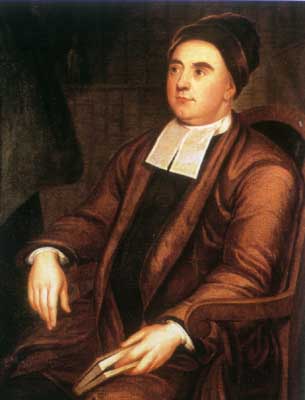
✰
The birth of the Gem, 1710. …Incidentally, what
was Berkeley’s argument for subjective idealism? i.e. that we have no evidence for the existence of matter, so reason leads us to suppose that only mind exists.
+++++Did David Stove unfairly characterize it as “you cannot have trees-without-the mind in mind, without having them in mind. Therefore, you cannot have trees-without-the-mind in mind”?
+++++You decide. Here’s the “trees in mind” bit:
XXIII. But say you, surely there is nothing easier than to imagine Trees, for instance, in a Park, or Books existing in a Closet, and no Body by to perceive them. I answer, you may so, there is no difficulty in it: But what is all this, I beseech you, more than framing in your Mind certain Ideas which you call Books and Trees, and the same time omitting to frame the Idea of any one that may perceive them? But do not you your self perceive or think of them all the while? This therefore is nothing to the purpose: It only shews you have the Power of imagining or forming Ideas in your Mind; but it doth not shew that you can conceive it possible, the Objects of your Thought may exist without the Mind: To make out this, it is necessary that you conceive them existing unconceived or unthought of, which is a manifest Repugnancy. When we do our utmost to conceive the Existence of external Bodies, we are all the while only contemplating our own Ideas. But the Mind taking no notice of it self, is deluded to think it can and doth conceive Bodies existing unthought of or without the Mind; though at the same time they are apprehended by or exist in it self. A little Attention will discover to any one the Truth and Evidence of what is here said, and make it unnecessary to insist on any other Proofs against the Existence of material Substance.
XXIV. It is very obvious, upon the least Inquiry into our own Thoughts, to know whether it be possible for us to understand what is meant, by the absolute Existence of sensible Objects in themselves, or without the Mind. To me it is evident those Words mark out either a direct Contradiction, or else nothing at all. And to convince others of this, I know no readier or fairer way, than to intreat they would calmly attend to their own Thoughts: And if by this Attention, the Emptiness or Repugnancy of those Expressions does appear, surely nothing more is requisite for their Conviction. It is on this therefore that I insist, to wit, that the absolute Existence of unthinking Things are Words without a Meaning, or which include a Contradiction. This is what I repeat and inculcate, and earnestly recommend to the attentive Thoughts of the Reader.
+++– George Berkeley, A Treatise Concerning the Principles of Human Knowledge, 1710
Ah well, at least he didn’t use hyphens. But we see here an early use of the heinous ‘in it self’, later adopted by Kant and the thousand other victims of this line of thinking. See Stove’s discovery of the worst argument in the world – the Gem. This argument is Stove’s archetypical Gem. According to Alan Musgrave, “conceptual idealism fuelled by Gems, implicit and explicit, is a dominant metaphysic of our age.”
✰ G.E. Moore’s 1939 argument against denial of the existence of an external world:
(i.e. outside your brain. Yes, you.) He held up his hands, or rather, wrote about holding them up. Curiously, this is a famous philosophical argument. Amazing, huh.
+++++For outsiders who wonder how this could even be a thing, (I mean the ‘problem of the external world’, not Moore’s contribution) Moore in his Proof of an External World sets the scene:
+++++In the Preface to the second edition of Kant’s Critique of Pure Reason some words occur, which, in Professor Kemp Smith’s translation, are rendered as follows:
+++++It still remains a scandal to philosophy…that the existence of things outside of us…must be accepted merely on faith, and that, if anyone thinks good to doubt their existence, we are unable to counter his doubts by any satisfactory proof.
+++++It seems clear from these words that Kant thought it a matter of some importance to give a proof of ‘the existence of things outside of us’ or perhaps rather (for it seems to me possible that the force of the German words is better rendered in this way) of ‘the existence of the things outside of us’; for had he not thought it important that a proof should be given, he would scarcely have called it a ‘scandal’ that no proof had been given. And it seems dear also that he thought that the giving of such a proof was a task which fell properly within the province of philosophy; for, if it did not, the fact that no proof had been given could not possibly be a scandal to philosophy.
+++++Now, even if Kant was mistaken in both of these two opinions, there seems to me to be no doubt whatever that it is a matter of some importance…
Now, the famous bit with the hands:
+++++…if I can prove that there exist now both a sheet of paper and a human hand, I shall have proved that there are now ‘things outside of us’; if I can prove that there exist now both a shoe and sock, I shall have proved that there are now ‘things outside of us’, etc.; and similarly I shall have proved it, if I can prove that there exist now two sheets of paper, or two human hands, or two shoes, or two socks, etc. Obviously, then, there are thousands of different things such that, if, at any time, I can prove any one of them, I shall have proved the existence of things outside of us. Cannot I prove any of these things?
+++++It seems to me that, so far from its being true, as Kant declares to be his opinion, that there is only one possible proof of the existence of things outside of us, namely the one which he has given, I can now give a large number of different proofs, each of which is a perfectly rigorous proof; and that at many other times I have been in a position to give many others. I can prove now, for instance, that two human hands exist. How? By holding up my two hands, and saying, as I make a certain gesture with the right hand, ‘Here is one hand’, and adding, as I make a certain gesture with the left, ‘and here is another’. And if, by doing this, I have proved ipso facto the existence of external things, you will all see that I can also do it now in numbers of other ways: there is no need to multiply examples.
+++++But did I prove just now that two human hands were then in existence? I do want to insist that I did; that the proof which I gave was a perfectly rigorous one; and that it is perhaps impossible to give a better or more rigorous proof of anything whatever. – G.E. Moore, Proof of an External World
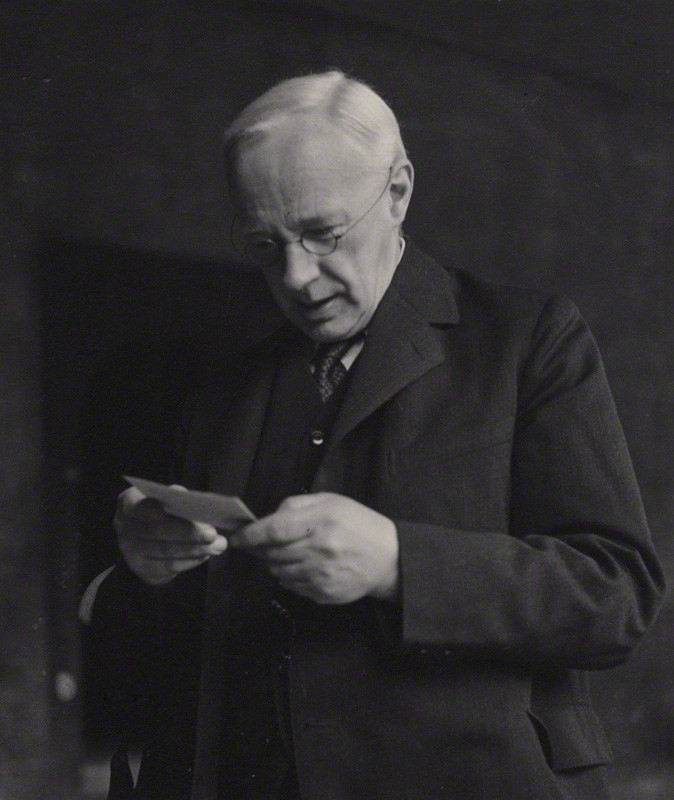 Paragraph of wikipedia quotes. “Not surprisingly, those inclined to skeptical doubts often found Moore’s method of argument not entirely convincing.” Moore’s hand didn’t rest there, but passed the baton : “The “Here is one hand” idea also deeply influenced Wittgenstein, who spent his last years working out a new approach to Moore’s argument in the remarks that were published posthumously as On Certainty.” (and see p69-75 of Malcolm’s A Memoir.) “Appeals of this type are subsequently often called “Moorean facts”. A Moorean fact [is] one of those things that we know better than we know the premises of any philosophical argument to the contrary”.
Paragraph of wikipedia quotes. “Not surprisingly, those inclined to skeptical doubts often found Moore’s method of argument not entirely convincing.” Moore’s hand didn’t rest there, but passed the baton : “The “Here is one hand” idea also deeply influenced Wittgenstein, who spent his last years working out a new approach to Moore’s argument in the remarks that were published posthumously as On Certainty.” (and see p69-75 of Malcolm’s A Memoir.) “Appeals of this type are subsequently often called “Moorean facts”. A Moorean fact [is] one of those things that we know better than we know the premises of any philosophical argument to the contrary”.
Moore with his hands, 1936
Wittgenstein related to me an anecdote about Moore that, he thought, exhibited what was most admirable in Moore’s character. Moore had been working hard on his lecture entitled ‘Proof of an External World’, which he was to deliver before the British Academy in London. He was very dissatisfied with the concluding part of it, but he had not been able to revise it in any way that satisfied him. One the day of the lecture, as he got ready to leave his house in Cambridge to catch the London train, Mrs. Moore said to him, ‘Don’t worry; I’m sure they’ll like it.’ To which Moore replied: ‘If they do they’ll be wrong!’
+++– Norman Malcom, Ludwig Wittgenstein: A Memoir
✰ Wittgenstein comes up with the idea of language-games
One day when Wittgenstein was passing a field where a football game was in progress the thought first struck him that in language we play games with words. A central idea of his philosophy, the notion of a ‘language-game’, apparently had its genesis in this incident.
+++– Norman Malcom, Ludwig Wittgenstein: A Memoir
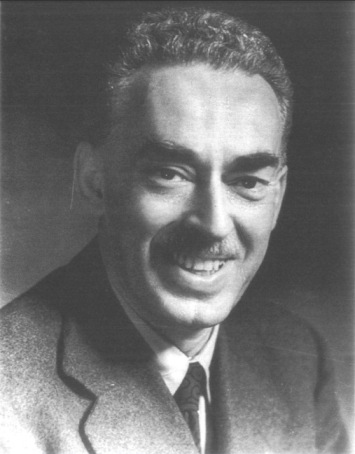 ✰ Piero Sraffa provides Wittgenstein with the crucial “conceptual break that founded his later philosophy”:
✰ Piero Sraffa provides Wittgenstein with the crucial “conceptual break that founded his later philosophy”:
Wittgenstein was insisting that a proposition and that which it describes must have the same ‘logical form’, the same ‘logical multiplicity’, Sraffa made a gesture, familiar to Neapolitans as meaning something like disgust or contempt, of brushing the underneath of his chin with an outward sweep of the finger-tips of one hand. And he asked: ‘What is the logical form of that?
+++– Norman Malcolm, Ludwig Wittgenstein: A Memoir
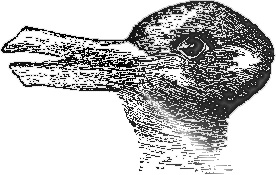
✰ The
duck-rabbit features in the work thus inspired, Wittgenstein’s
Philosophical Investigations, 1953. (He ‘only’ published 2 books, 35 years apart, the second posthumously at that – although both significantly changed the philosophical world – and spent a lot of his time, it seems, trying to persuade his students not to become philosophers, but to do something useful instead; be a doctor or laborer or
something.) I just think it’s kind of a cute thing. The original, from 1892:
As seen in the Philosophical Investigations, with its discussion of seeing as:


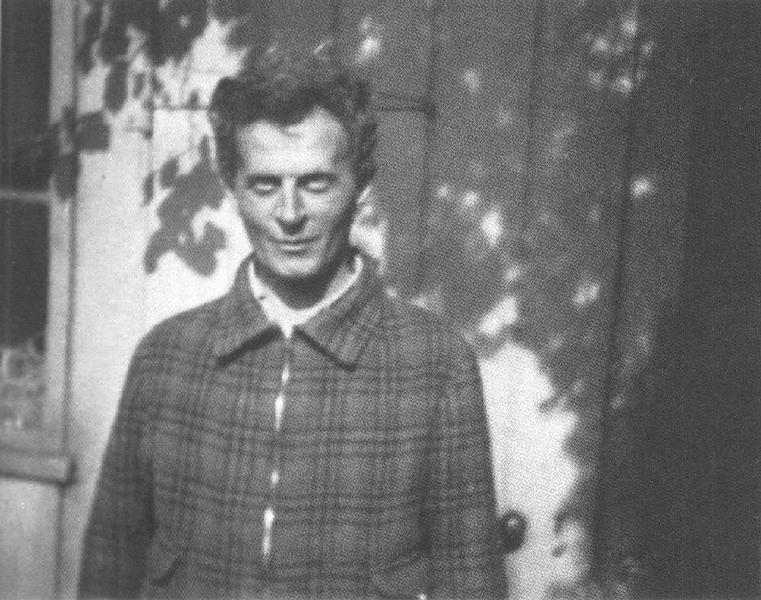
Duck? Rabbit? You decide.

The work of the philosopher consists in assembling reminders for a particular purpose. – Wittgenstein, PI 127
For heaven’s sake, don’t let me become a writer of books about books. – Lichtenberg
References/links
Johnson’s refutation of Berkeley
Boswell, Life of Johnson, Vol 1 p472
Gems
Alan Musgrave article on Idealism and Antirealism, 1995, reprinted as Conceptual idealism and Stove’s Gem
“…conceptual idealism fuelled by Gems, implicit and explicit, is a dominant metaphysic of our age.”
Tom Cunningham’s 1998 dissertation Stove’s Gem and the Fallacy of Equivocation
Roy Brassier, Concepts and Objects, ch.5 in The Speculative Turn: Continental Materialism and Realism
Fred Kroon, Reflections on the Gem, in From Truth to Reality: New Essays in Logic and Metaphysics

 *Thomas Reid (1710-96) was the founder of the Scottish school of common sense philosophy. He gave its basic principle thus:
*Thomas Reid (1710-96) was the founder of the Scottish school of common sense philosophy. He gave its basic principle thus:  ✰ The birth of the Gem, 1710. …Incidentally, what was Berkeley’s argument for subjective idealism? i.e. that we have no evidence for the existence of matter, so reason leads us to suppose that only mind exists.
✰ The birth of the Gem, 1710. …Incidentally, what was Berkeley’s argument for subjective idealism? i.e. that we have no evidence for the existence of matter, so reason leads us to suppose that only mind exists. Paragraph of wikipedia quotes. “Not surprisingly, those inclined to skeptical doubts often found Moore’s method of argument not entirely convincing.” Moore’s hand didn’t rest there, but passed the baton : “The “Here is one hand” idea also deeply influenced Wittgenstein, who spent his last years working out a new approach to Moore’s argument in the remarks that were published posthumously as On Certainty.” (and see p69-75 of Malcolm’s A Memoir.) “Appeals of this type are subsequently often called “Moorean facts”. A Moorean fact [is] one of those things that we know better than we know the premises of any philosophical argument to the contrary”.
Paragraph of wikipedia quotes. “Not surprisingly, those inclined to skeptical doubts often found Moore’s method of argument not entirely convincing.” Moore’s hand didn’t rest there, but passed the baton : “The “Here is one hand” idea also deeply influenced Wittgenstein, who spent his last years working out a new approach to Moore’s argument in the remarks that were published posthumously as On Certainty.” (and see p69-75 of Malcolm’s A Memoir.) “Appeals of this type are subsequently often called “Moorean facts”. A Moorean fact [is] one of those things that we know better than we know the premises of any philosophical argument to the contrary”. ✰ Piero Sraffa provides Wittgenstein with the crucial “conceptual break that founded his later philosophy”:
✰ Piero Sraffa provides Wittgenstein with the crucial “conceptual break that founded his later philosophy”: ✰ The duck-rabbit features in the work thus inspired, Wittgenstein’s Philosophical Investigations, 1953. (He ‘only’ published 2 books, 35 years apart, the second posthumously at that – although both significantly changed the philosophical world – and spent a lot of his time, it seems, trying to persuade his students not to become philosophers, but to do something useful instead; be a doctor or laborer or something.) I just think it’s kind of a cute thing. The original, from 1892:
✰ The duck-rabbit features in the work thus inspired, Wittgenstein’s Philosophical Investigations, 1953. (He ‘only’ published 2 books, 35 years apart, the second posthumously at that – although both significantly changed the philosophical world – and spent a lot of his time, it seems, trying to persuade his students not to become philosophers, but to do something useful instead; be a doctor or laborer or something.) I just think it’s kind of a cute thing. The original, from 1892:



